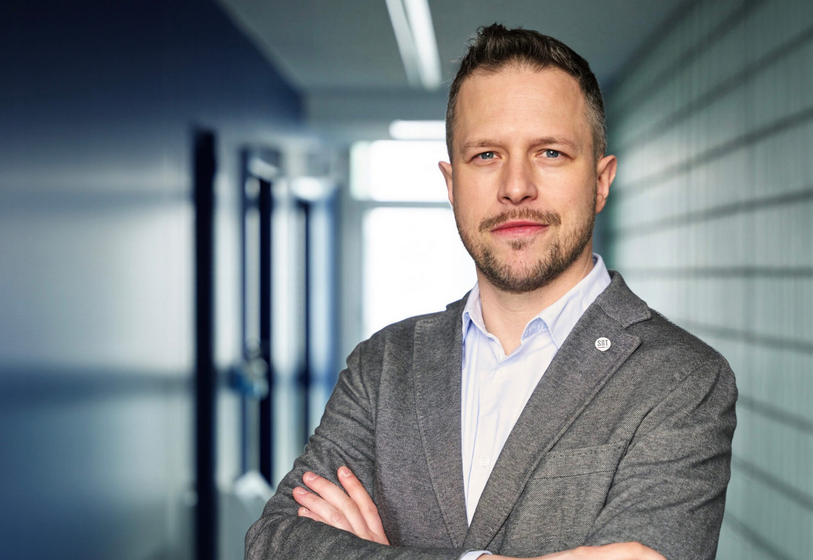Open Source doesn’t have to be complex, but it’s also important not to push for open solutions where it isn’t allowed or simply doesn’t make any sense, strategically.
As an interdisciplinary research centre, SnT is fully committed to academic freedom. But its more than 60 research partnerships with industrial players require a certain level of diligence, given the potential commercial impact of the results obtained.
And let’s not forget that no two projects are the same. Funding schemes, a partner’s requirements, strategic research interest, and legal compliance can all impact the “academic freedom” and steer the software results on a different valorization path.
It’s a tool, not a strategy
That’s where the Free and Open Source Software (FOSS) team comes in. Jacek Plucinski is a Technology Transfer Officer and leads this initiative. His goal? To support researchers to use FOSS the right way. He sees Open Source as a tool, not a strategy.
For SnT, this means no researcher is mandated to open-source their project’s results, or to use FOSS to develop research results. Instead, Plucinski’s team looks at research projects on a case-by-case basis.
‟ We always reserve the right to scientific publication”

Founder of the FOSS team
On the other hand, his team also ensures that results associated with partnerships are handled according to the partner’s needs and the initial contract drafted. Plucinski explains: “Some of our collaborative partnerships limit the open release of results. But we always reserve the right to scientific publication. You can see that merging different, sometimes conflicting interest is not a trivial task.”
Another scenario could be plans to turn research results into a start-up, or file a patent based on technologies developed within a project. “Here, it would be strategic to avoid open-sourcing results, as a direct outcome of the IP strategy of a given project.” Plucinski adds.
So managing FOSS requires both technical and legal knowledge, as well as the project context. That’s why SnT offers a set of supportive initiatives including trainings, awareness raising and tailored FOSS-clinics for in-depth project support.
Come meet the Open Source community in Luxembourg
For the first time, Luxembourg is hosting the LibreOffice and Open Source Conference 2024 with the active support of SnT.
A number of speakers will be sharing their knowledge from 10 to 12 October at talks to be held in Belval. Jacek Plucinski will be one of them. The programme will focus on Open Source, digital sovereignty, interoperability and EdTech. Whatever their field, every researcher has something to learn and gain from Open Source.
Why Open Source plays a role at SnT and the University of Luxembourg
As part of a research focused university, SnT’s role and strategy is to bridge the gap between science and the needs of industry. The Center uses Open Source strategically to boost its socio-economic impact, respond to the expectations of both private and public research funders, while keeping high level of scientific excellence and publications at the core of its DNA.
On a broader scope, the University of Luxembourg comes in 19th in the world ranking of the most active research institutions in software engineering. SnT is home to some of the most experienced and cited researchers in software engineering such as Yves Le Traon and Tegawendé F. Bissyandé.
